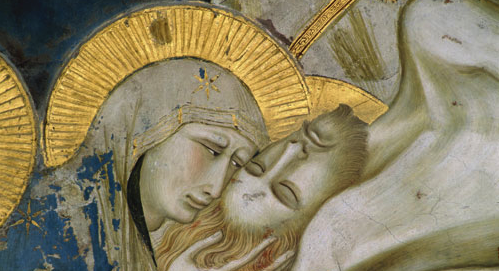It’s hard to believe that barely three weeks have passed since the Boston Marathon was bombed. The (still)-evolving media frenzy around the attacks and subsequent manhunt stretched into what felt like months for us Bostonians. Glued to the news and stuck in our homes, the events shook all of us out of the fog of our routines and mundane preoccupations. Boston is a small city. Nearly everyone living here is just a few degrees of separation from the victims of the bombing, or has another personal connection to the events— from a friend or family member who was too close for comfort to the explosions to a geographic familiarity (or proximity) with the locations in which the events took place. Tragedy has a way of snapping life into perspective, raising many larger questions. Where does evil come from? How should justice be executed? Are we safe? While it is tempting to gloss over the more cosmic issues in an effort to regain normalcy and rebuild our community, at the very least, a brief meditation on our mortality can inform and invigorate the way in which we move forward.
Death is not an issue many 20-somethings in America have often to face. Living in a generally safe society with high life expectancy, it is easy to forget our own finitude. Safety and youth bread idealism. As William Hazlitt wrote, “To be young is to be as one of the Immortals. One half of time indeed is spent–the other half remains in store for us with all its countless treasures, for there is no line drawn and we see no limit to our hopes and wishes.” Us young urbanites frequently live with this mentality; the world is our oyster. Wonder, optimism, and ambition drive our pursuits. Yet tragedies like last week’s pull the rug out from underneath this sort of attitude. Among the hundreds of people impacted and injured, the four individuals who were killed were all under the age of 30. A random act of violence cut those individuals’ “hopes and wishes” painfully short. This harsh reality provokes many reactions: cynicism, anger, and fear.
In an interview with the New York Times back in January, writer George Saunders, who had his own brush with death years ago, wonders “if we could conduct our lives with the kind of openness that sometimes comes with proximity to death.” This sentiment is captured in his collection of short stories, The Tenth of December (reviewed by Stephen Kim for the imminent Spring issue of Fare Forward). The final story of the collection describes the plight of an elderly man, dying of cancer, who has retreated to the forest in wintertime to end his life in the frosty wilderness. A young boy chases after him, and winds up in danger himself. As the elderly man snaps back to his senses in an effort to save the boy, he wonders at the value of his own life, which he was so close to letting slide through his fingers. In a poignant moment of free, indirect speech, the man ponders,
Why should those he loved not lift and bend and feed and wipe him, when he would gladly do the same for them? He’d been afraid to be lessened by the lifting and bending and feeding and wiping, and was still afraid of that, and yet, at the same time, now saw that there could still be many – many drops of goodness, is how it came to him—many drops of happy— of good fellowship—ahead, and those drops of fellowship were not —had never been—his to withheld.
The old man, so burdened by the tragedy of his disease, has begun to lose hope in the value of his life. He fears his physical decay will cost him his dignity and independence. However, helping a young person, so full of life, and yet on the brink of death, reminds him of the preciousness of his own existence. It is this renewed understanding of his own mortality— that he is consequential, and has much to live for— that propels him to live on. He now feels that it is not acceptable to become jaded, to “withhold” the “drops of goodness” ahead.
In the face of the horrifyingly tragic, it can be easy to block out the sickening weight of it all, and press on with routine. However, pondering the limitedness of human existence can truly re-instill a sense of the value each day holds. From a Christian perspective, this can also impress upon us to the need to live with eternity in mind. While we have the promise of life after death, each day on Earth becomes a critical opportunity to serve God and others. The Gospel itself is a tremendous example of this. In his perfection, Jesus, though young, able-bodied, and garnering an increasing large following, never lost sight of his purpose in his time on earth. This sense of urgency is carried throughout Christ’s ministry. The Gospel of John is punctuated with phrases to the effect of “my time has not yet come,” until finally, in John 17, Christ yields himself up, exclaiming, “Father, the hour has come; glorify your Son that the Son may glorify you.” Jesus lived intentionally, knowing his life was driving towards an ultimately purposeful death (and subsequent resurrection!). It was this violent sacrifice of the perfectly blameless that had the most cosmic meaning of all.
All in all, the numerous tragedies of recent months—Boston, Newtown, and West, Texas— can do much to dash idealistic visions of our communities, fellow humans, and possibilities for the future. However, contending with the reality of death can take us beyond cynicism towards purpose. Each day becomes a blessing to be used wisely, and the hope of life after death infuses our apparent limitedness with eternal significance.
[Image of Mary and Jesus from Wikipedia]













